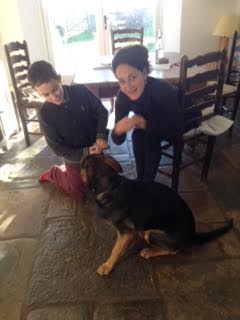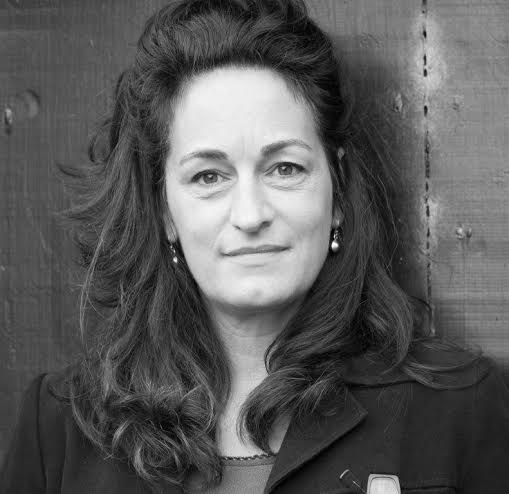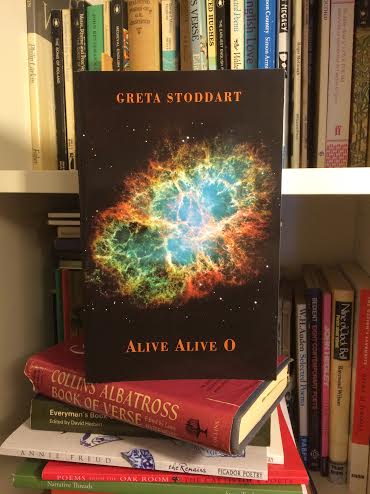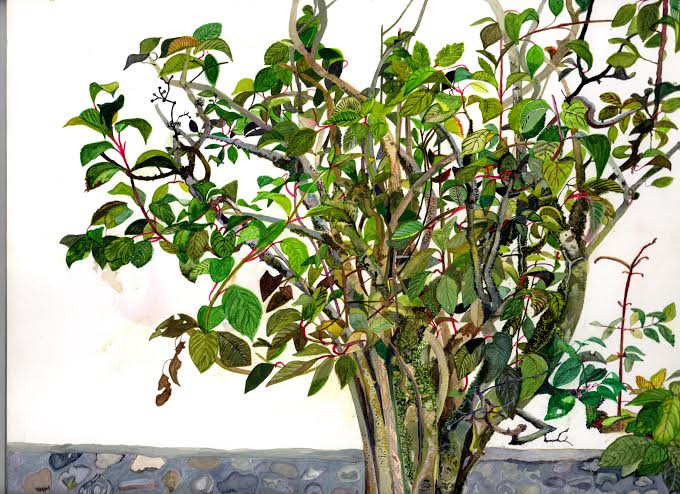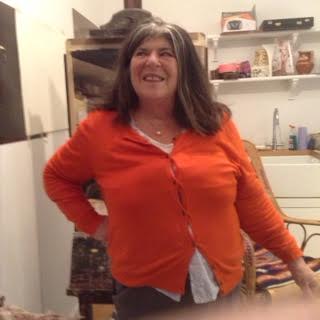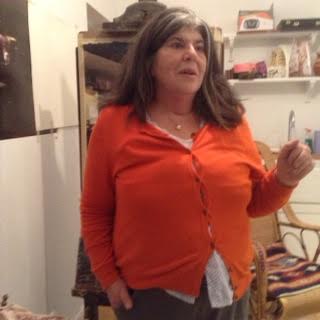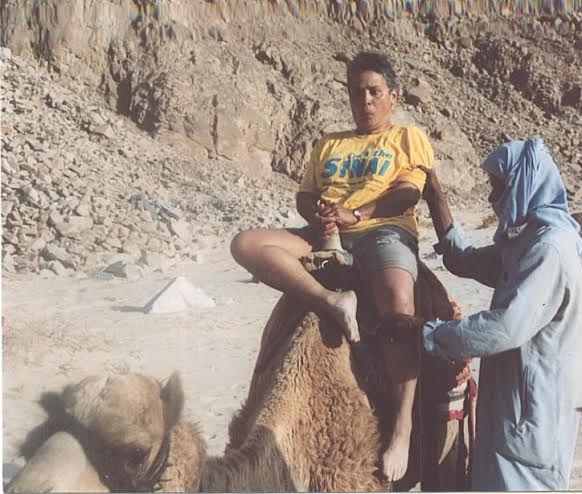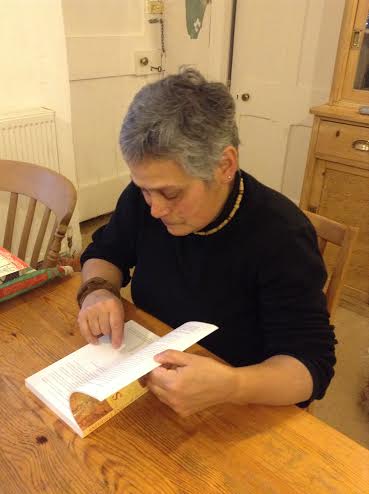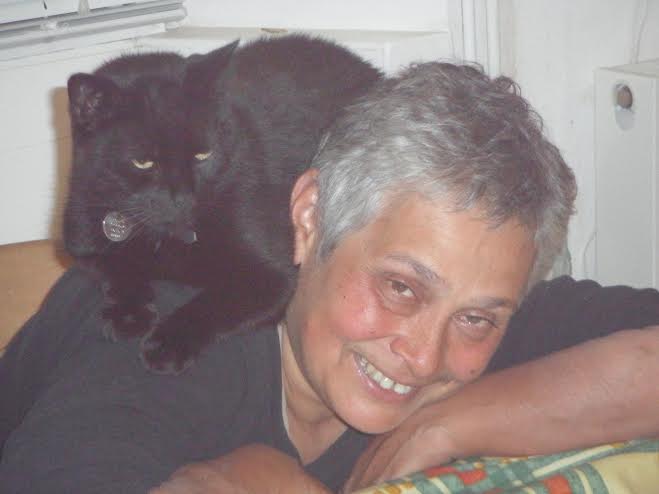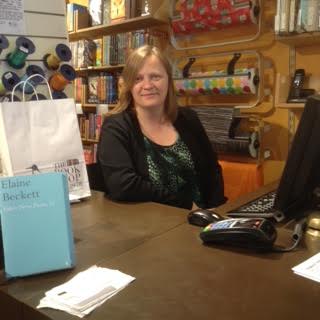 Antonia Squire is building up a loyal clientele for the Bridport Bookshop including dogs- they love the classy doggy biltong available and not just with a book buy. Brought up in Surrey and educated in Harrogate, Antonia upped sticks aged 20 for California, married an American and was happily living in the world of independent bookshops in San Francisco- first Kepler’s and then The Reading Bug- where she was the children’s book buyer amongst other roles.
Antonia Squire is building up a loyal clientele for the Bridport Bookshop including dogs- they love the classy doggy biltong available and not just with a book buy. Brought up in Surrey and educated in Harrogate, Antonia upped sticks aged 20 for California, married an American and was happily living in the world of independent bookshops in San Francisco- first Kepler’s and then The Reading Bug- where she was the children’s book buyer amongst other roles.
Until a holiday in the UK in 2014 when they did a progress from Yorkshire to Cornwall and became one of many smitten with the idea of the south-west and Cornwall. She came across the sale details for the Bridport Bookshop, voted one of the Guardian’s top 50 indie bookshops, took a detour on the way back to Heathrow and discovered the delights of the town and the potential of the shop, one of several book emporiums including two excellent second hand/antiquarian shops, a Waterstones and a wonderful Oxfam which has a brilliant range of “loved” Penguins.
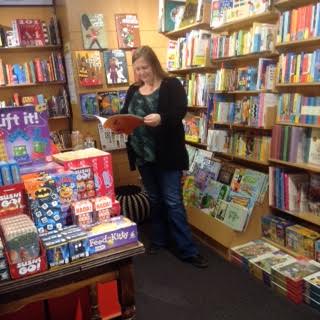 The result was changing coast and country but still keeping the west bit and, with husband and dogs in tow, becoming a bookshop owner. And discovering the challenges involved in running a business in a new country! Small but vital changes were made to the shop’s geography, not quite Hogwarts, but involving moving the counter to the back of the shop so the customer can see in and the staff can see out and increasing the size and range of the stock. “I’m a bookseller. The stock is the most important element of the shop and knowing what people are going to want to read and not just what a publisher wants to see displayed is more art than science”.
The result was changing coast and country but still keeping the west bit and, with husband and dogs in tow, becoming a bookshop owner. And discovering the challenges involved in running a business in a new country! Small but vital changes were made to the shop’s geography, not quite Hogwarts, but involving moving the counter to the back of the shop so the customer can see in and the staff can see out and increasing the size and range of the stock. “I’m a bookseller. The stock is the most important element of the shop and knowing what people are going to want to read and not just what a publisher wants to see displayed is more art than science”.
She sees no problems with co-existing with the variety of other booksellers, her goal is to be the place people come to find the things they don’t know they want. Almost a year on, she is well on the way to establishing that indie bookshops are an invaluable resource to a town. So many people want the individual experience that can only be achieved by a true “shopkeeper” and, she has observed, people are very loyal, although she has had to tone down the “hi my name is kelly how are you today?” customer service style – less touch feely than she’s been used to but she still says hello!
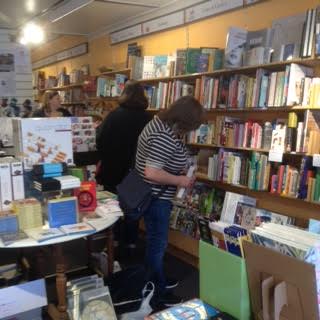 And she is aware of the potential of the indie bookshop as a grassroots support for the community, working more closely with schools in supporting their curriculum needs as well as providing a venue for local authors to promote their works and judging local poetry and fiction slams. In particular she has developed links with the Open Book festival, a festival for and by the local community about literacy rather than literature which is more the remit of the more formal Bridport Literary Festival (which she is also working with to help develop the Children’s Programming). The shop will be supporting the Bridport Big Read as well as a pop up drama production. So over halfway through her first year she is restoring an independent bookshop into the literary and literate heart of the town. And she giftwraps the books too!
And she is aware of the potential of the indie bookshop as a grassroots support for the community, working more closely with schools in supporting their curriculum needs as well as providing a venue for local authors to promote their works and judging local poetry and fiction slams. In particular she has developed links with the Open Book festival, a festival for and by the local community about literacy rather than literature which is more the remit of the more formal Bridport Literary Festival (which she is also working with to help develop the Children’s Programming). The shop will be supporting the Bridport Big Read as well as a pop up drama production. So over halfway through her first year she is restoring an independent bookshop into the literary and literate heart of the town. And she giftwraps the books too!
* Frost would love to hear about other Independent Bookshops – contact: frost@margaret-graham.com

